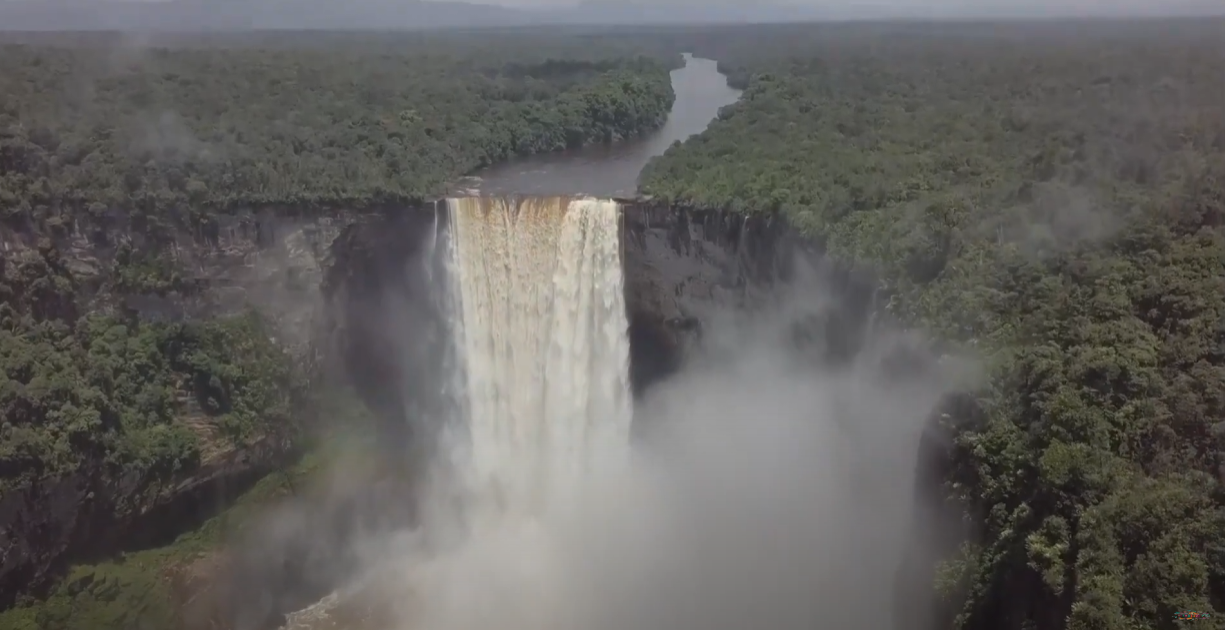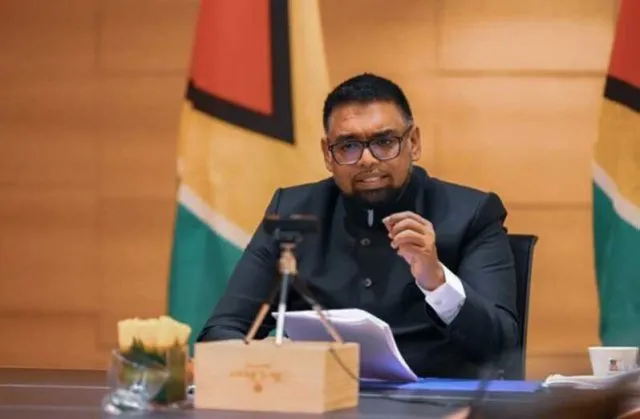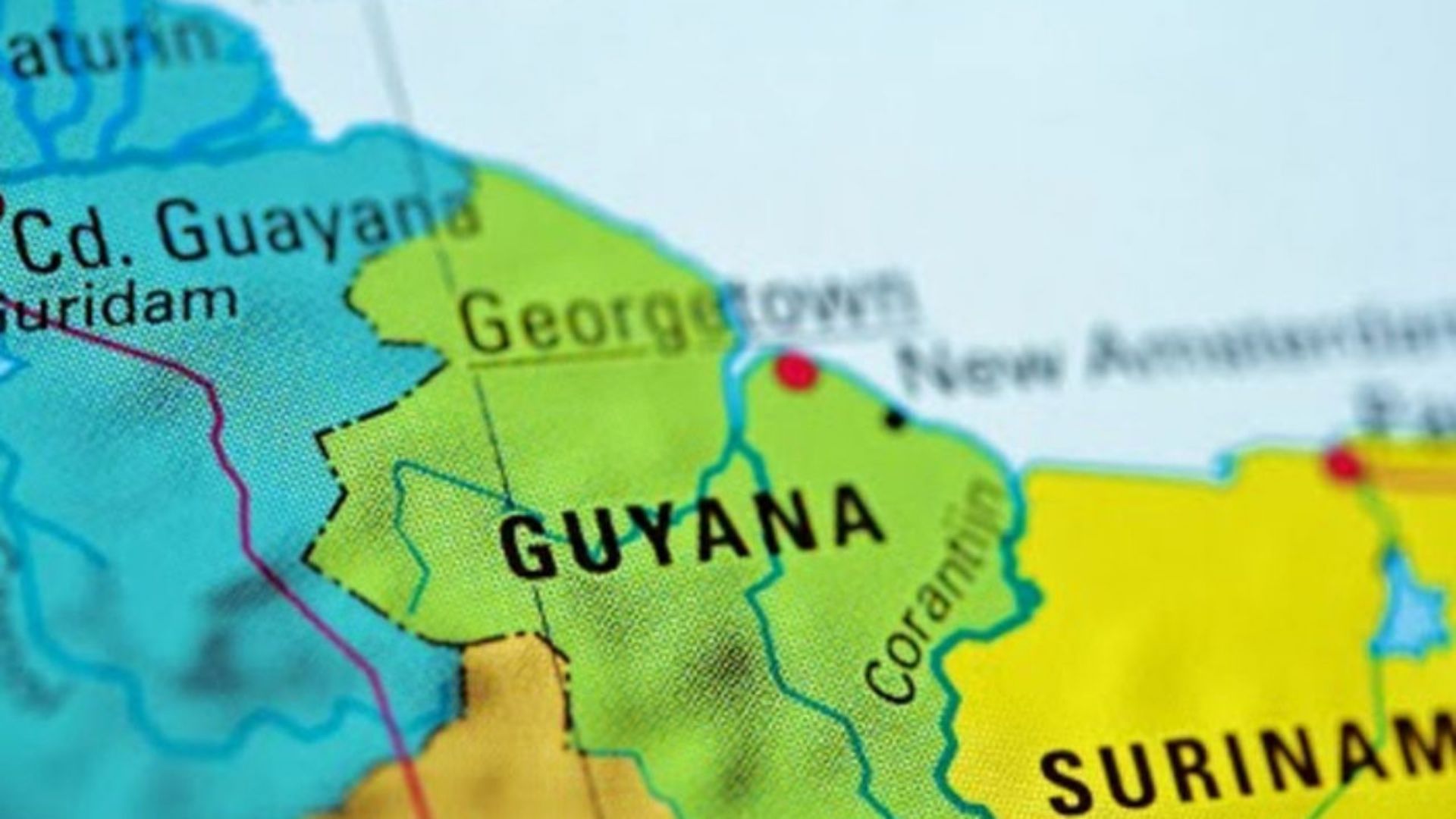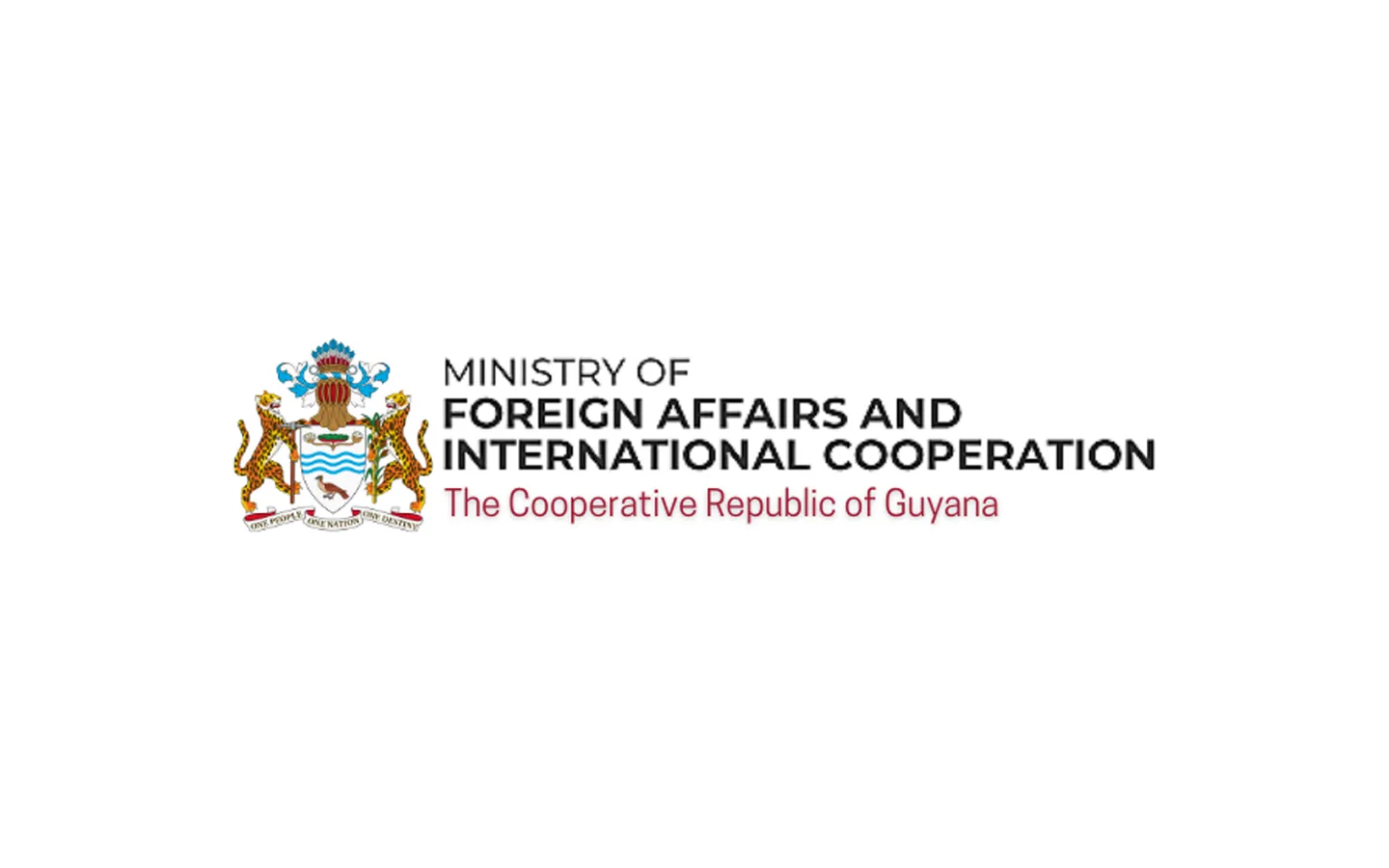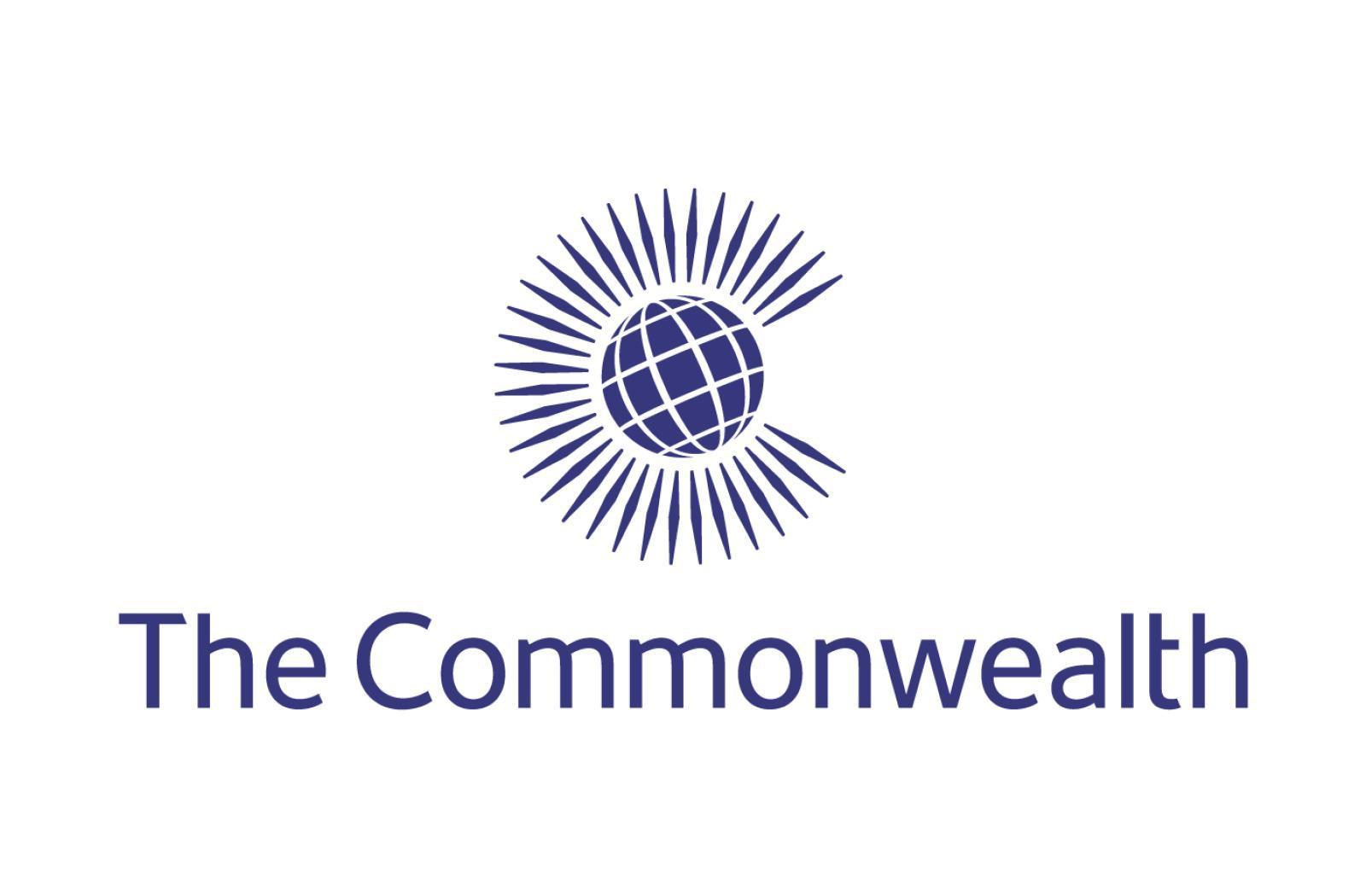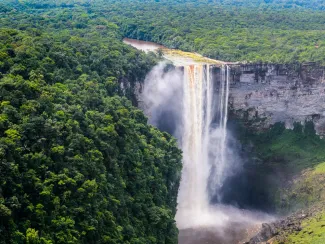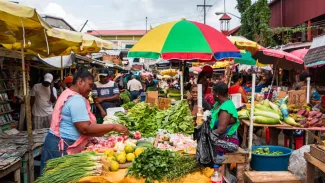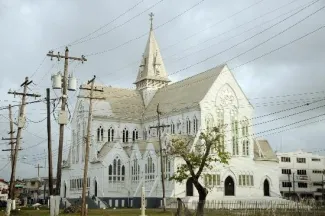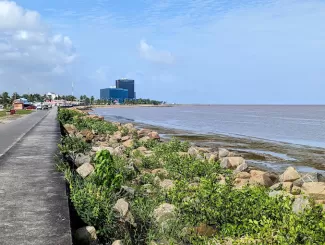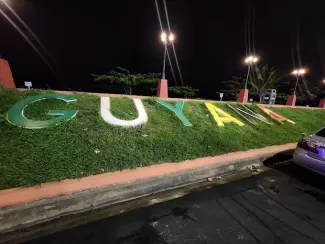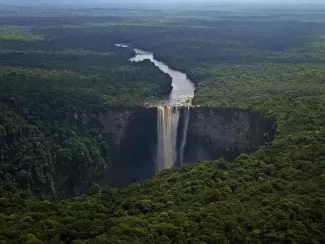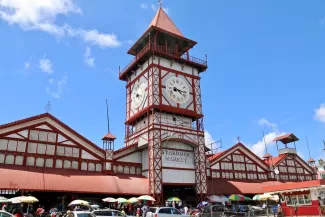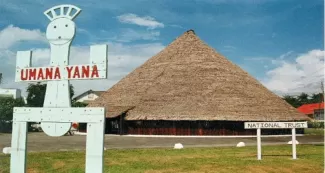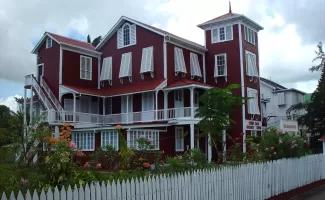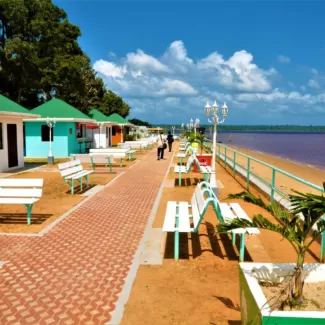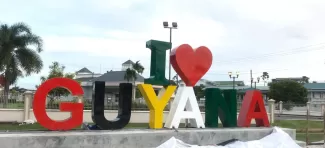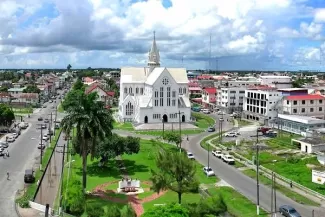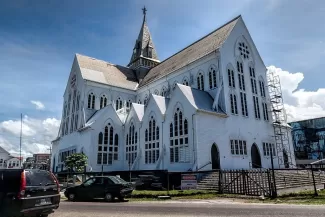Sir Robert Schomburgk, a British surveyor, proposed the Schomburgk Line as the boundary between Venezuela and British Guiana. The line included territories that Venezuela claimed as its own. This initial act marked the beginning of the long-standing territorial dispute.
infoguyana.caracas@mission.gov.gy | Working Hours: 8:30 am to 3:30 pm | tel:+58 424 1264347
Border Controversy
Clearing the narrative
THE BORDER DISPUTE BETWEEN GUYANA AND VENEZUELA: AN ANALYSIS OF RECENT DEVELOPMENTS AND INTERNATIONAL LAW
The longstanding border dispute between Guyana and Venezuela, rooted in historical grievances and conflicting territorial claims, has experienced significant developments in recent years. This report explores the pivotal role played by the Caribbean Community (CARICOM) and the International Court of Justice (ICJ) in addressing the conflict. It also examines Venezuela’s resistance to the ICJ’s jurisdiction and evaluates the fairness of the 1899 Arbitral Award, which forms the crux of the dispute.
CARICOM’s Diplomatic Efforts and the ICJ’s Involvement
The Caribbean Community (CARICOM) has been instrumental in mediating the border dispute between Guyana and Venezuela. A notable incident occurred in early February 2021 when Venezuelan authorities detained Guyanese fishing vessels and their crews, leading to heightened tensions. CARICOM’s intervention was critical in resolving the immediate crisis. On February 2, 2021, Venezuelan authorities released the detained vessels and crew, a decision attributed to CARICOM’s diplomatic efforts.
CARICOM’s 32nd Intersessional Meeting on February 24, 2021, highlighted the organization's support for Guyana and the ICJ’s role in resolving the dispute. CARICOM Heads of Government welcomed the ICJ’s decision to accept jurisdiction over Guyana’s case, which concerns the 1899 Arbitral Award that established the border between British Guiana (now Guyana) and Venezuela. Despite Venezuela’s rejection of the ICJ’s jurisdiction and subsequent actions, CARICOM reaffirmed its support for the judicial process and denounced Venezuela’s unilateral actions, such as the issuance of Decree No. 4415, which claimed sovereignty over disputed areas.
Venezuela’s Opposition and the Implications for International Law
Venezuela’s reaction to the ICJ’s involvement has been marked by resistance and attempts to undermine the judicial process. Since the early 1960s, Venezuela has employed various tactics to challenge the Arbitral Award, including diplomatic pressure and attempts to invalidate the award through non-judicial means. The Venezuelan government’s issuance of Decree No. 4415 in 2020, which claimed sovereignty over disputed maritime areas, exemplifies its continued opposition to the arbitral decision.
Venezuela’s stance reflects a strategic choice to avoid a judicial ruling that might not favor its claims. The Venezuelan government’s preference for “friendly negotiations” over judicial resolution reveals its reluctance to face an impartial legal decision. Despite changes in Guyana’s government, which Venezuela attempted to leverage for its advantage, Guyana has remained steadfast in its commitment to resolving the dispute through international law.
Evaluating the 1899 Arbitral Award: Historical and Legal Perspectives
The 1899 Arbitral Award, which settled the border dispute between British Guiana and Venezuela, remains a central issue in the conflict. The award was the result of extensive negotiations and adjudications, including the Cleveland Commission and the Paris Tribunal. The Cleveland Commission, appointed by U.S. President Grover Cleveland in 1896, played a key role in assessing the claims and setting the stage for arbitration. The Paris Tribunal, established under the 1897 Washington Treaty, issued the final arbitral decision, which has been upheld as fair and impartial by various historical and legal assessments.
The Paris Tribunal consisted of esteemed jurists who carefully considered the arguments of both parties before reaching a unanimous decision. This decision has been repeatedly validated by subsequent reviews and is regarded as a fair resolution of the territorial dispute. Despite Venezuela’s objections and attempts to challenge the award, the legal consensus is that the Arbitral Award was just and consistent with international law.
The Path Forward
The border dispute between Guyana and Venezuela underscores the importance of international law and diplomatic intervention in resolving conflicts. CARICOM’s involvement and the ICJ’s jurisdiction have been crucial in addressing the dispute, despite Venezuela’s opposition and attempts to undermine the legal process. The 1899 Arbitral Award, upheld by rigorous investigations and respected legal authorities, provides a foundation for resolving the conflict.
As the ICJ continues its work, the commitment of both Guyana and the international community to a peaceful and legal resolution will be essential in achieving a final and equitable settlement. The case serves as a significant example of how international institutions and legal frameworks can play a decisive role in resolving longstanding disputes and maintaining global order.
Guyana-Venezuela Border Controversy Timeline
-
1895: The Venezuelan Crisis of 1895 escalated when Venezuela’s Foreign Minister demanded arbitration to resolve the boundary dispute. The United States, invoking the Monroe Doctrine, pressured Britain to agree to arbitration.
1899: The Arbitral Award of Paris. The arbitration tribunal awarded the majority of the disputed territory to British Guiana. Ignacio Andrade, then President of Venezuela, and Severo Mallet-Prevost, Venezuela's… See More
1895-1899 -
In 1962, Venezuelan Foreign Minister Marcos Falcón Briceño formally reopened the dispute at the United Nations, arguing that the 1899 Arbitral Award was null and void. He emphasized, "Venezuela cannot accept an award tainted by fraud and irregularities," reflecting Venezuela's position on the legitimacy of the decision.
1962 -
On February 17, 1966, the Geneva Agreement was signed by Venezuelan Foreign Minister Ignacio Iribarren Borges, British Foreign Secretary Michael Stewart, and Forbes Burnham, the Prime Minister of British Guiana. This agreement sought to find a peaceful resolution through a Mixed Commission. Iribarren Borges declared, "This agreement offers a framework for a just settlement that respects Venezuela's rights."
1966 -
Signed on June 18, 1970, by Venezuelan Foreign Minister Aristides Calvani and Guyanese Foreign Minister Shirley Field-Ridley, the Protocol of Port of Spain established a 12-year moratorium on the dispute. Calvani stated, "This protocol is a testament to our commitment to peace and regional stability, allowing both nations to develop in harmony."
1970 -
Upon the expiration of the Protocol of Port of Spain in 1982, Venezuelan Foreign Minister José Alberto Zambrano Velasco announced that Venezuela would not renew the protocol, emphasizing the need to resume negotiations. He asserted, "The time has come to address this historical injustice through direct and respectful dialogue."
1982 -
1999: Venezuelan President Hugo Chávez and Foreign Minister José Vicente Rangel sought to strengthen regional ties while keeping the dispute at a diplomatic level. Chávez frequently mentioned, "The Esequibo is ours, but we seek a peaceful resolution through dialogue and understanding."
2010: When Guyana awarded oil exploration licenses in the disputed maritime zone, Venezuelan Foreign Minister Nicolás Maduro condemned the move, stating… See More
1999-2010 -
Guyanese Foreign Minister Carolyn Rodrigues-Birkett filed an application with the International Court of Justice (ICJ) in 2013, arguing that the court should validate the 1899 Arbitral Award. Venezuelan Foreign Minister Elías Jaua responded, insisting that "the ICJ lacks jurisdiction, as the Geneva Agreement mandates bilateral negotiations, not judicial intervention."
2013 -
In May 2015, after ExxonMobil discovered significant oil reserves in the contested maritime zone, Venezuelan Foreign Minister Delcy Rodríguez issued a strong statement, declaring, "Venezuela will defend its sovereign rights against any foreign incursions into our territory." Guyanese Foreign Minister Carl Greenidge retorted that "Guyana will not be intimidated by baseless claims."
2015 -
In 2018, the ICJ confirmed its jurisdiction over the case. Venezuelan Foreign Minister Jorge Arreaza maintained Venezuela's opposition, stating, "We stand firm in our belief that this dispute must be resolved through direct negotiations, not imposed rulings." Guyanese Foreign Minister Carl Greenidge welcomed the ICJ's decision, calling it "a victory for international law and the rule of justice."
2018 -
On December 18, 2020, the ICJ ruled in favor of hearing the case, a decision lauded by Guyanese Foreign Minister Hugh Todd as "an important step towards a definitive resolution." Venezuelan Foreign Minister Jorge Arreaza criticized the ruling, stating, "This is a setback for bilateral diplomacy and a violation of the spirit of the Geneva Agreement."
2021 -
2022: Both nations submitted detailed arguments to the ICJ. Venezuelan Foreign Minister Yván Gil reiterated Venezuela’s stance that the 1899 Arbitral Award was invalid, while Guyanese Foreign Minister Hugh Todd continued to defend the award's legitimacy.
December 3, 2023: Esequibo Referendum. Venezuela held a controversial referendum regarding the Esequibo, in which over 90% of voters supported the reclamation of the territory.… See More
2022-2023 -
As of 2024, the international community is awaiting the ICJ’s final judgment on the case. Venezuelan Foreign Minister Yván Gil continues to assert Venezuela’s rights over the Esequibo, while Guyanese Foreign Minister Hugh Todd remains confident in a favorable ruling for Guyana. The judgment will have significant implications for regional stability and the economic interests of both countries, particularly concerning the contested oil-rich… See More
2024

